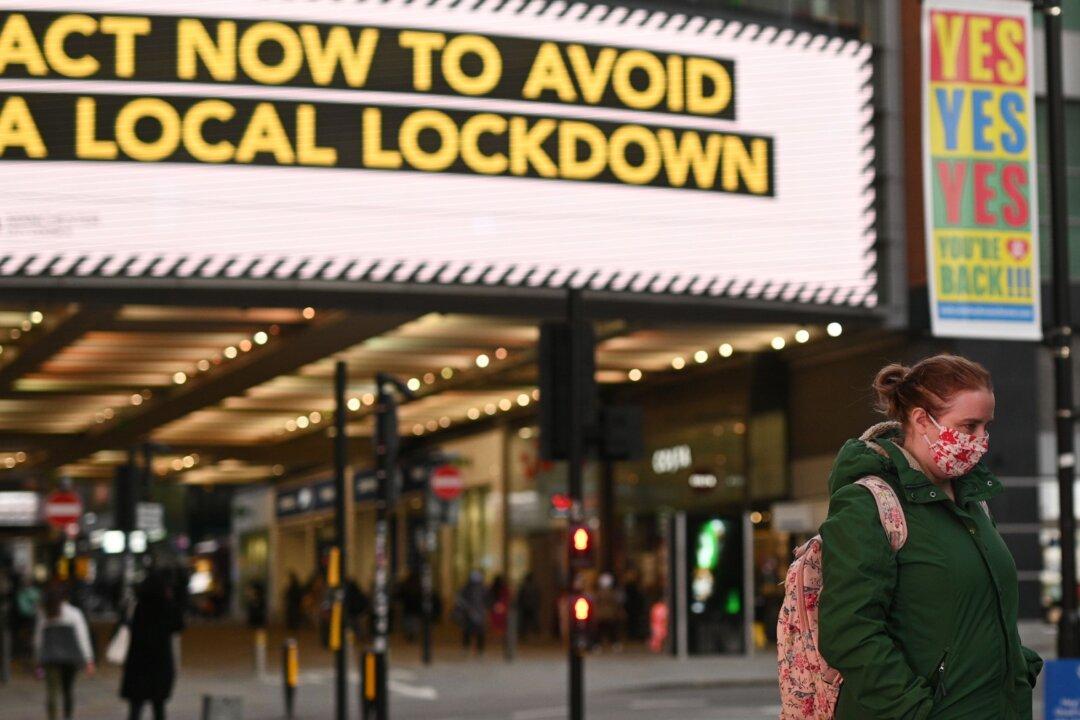Around a dozen hospitality organizations banded together, ready to seek a judicial review of England’s CCP virus restrictions, but have now put their plans on hold after the latest government announcement on local lockdowns.
The action came ahead of the government’s introduction of a three-tiered alert system, which involves shutting down hospitality businesses in “tier 3” areas. The three-tiered system, announced on Monday by Prime Minister Boris Johnson, will be debated and voted on in Parliament on Tuesday.





